Government information
Why not take special measures for Chinese tourists? Wang Yikang cited a set of data and two reasons to explain
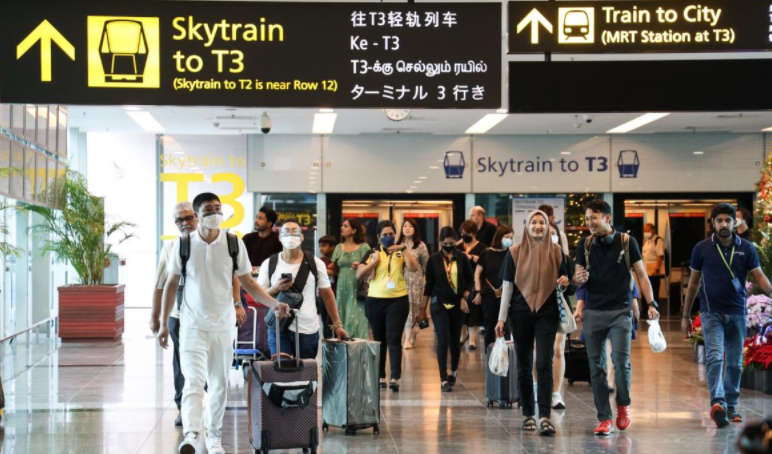
Singapore is not doing nothing
Since China announced the lifting of border restrictions on January 8, many Singaporeans have been worried about the resurgence of the epidemic, which may lead to a resurgence of social distancing measures. Some Chinese people also complain that the Chinese government does not adopt targeted epidemic prevention strategies similar to those of other countries.
Minister of Health Ong Ye Kung went to the front line in Congress today (9th), using a set of data and two reasons to explain why the authorities did not do so.
Data: Incoming cases from China are rare
According to the Ministry of Health, daily imported cases locally account for only 10 to 15% of all Covid-19 cases.
Among them, there are very few cases from China. Of all imported cases, less than 5% came from China.
Wang Yikang revealed that although the last four weeks of 2022 are the most severe period of the epidemic in China, only about 200 tourists from China were diagnosed with the new crown disease within the four weeks. That compares with around 1,000 Covid-19 cases in Singapore every day.
In addition, during these four weeks, among the imported cases, there were seven severe cases, and only one case came from China.
Therefore, he emphasized:
"This has very little impact on our healthcare system."
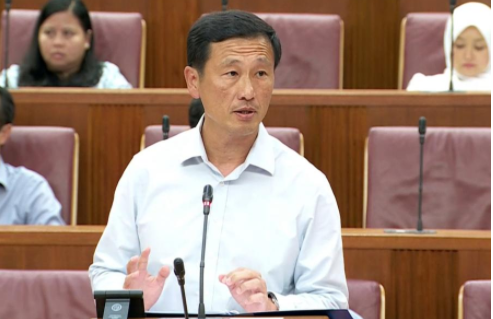
Ong Yikang said the impact of cases caused by Chinese inbound tourists on the local medical system was limited. (GOV.SG)
Reason 1: Flights between Singapore and China are scarce
Continuing from the above, the number of imported cases from China is relatively small, and the main reason is that there are very few tourists from China.
Wang Yikang explained that before the epidemic, there were about 400 flights from China to Singapore per week, but now there are only 38.
After conversion, 700 to 1,000 tourists arrive in Singapore from China every day, which is less than 10% of the number before the epidemic, and 60% of them are Singaporeans, permanent residents and long-term pass holders.
There are not many tourists entering from China, so the risk is naturally not high.
Wang Yikang also said that the Ministry of Transport will wait until the epidemic in China slows down before carefully adjusting the number of flights between Singapore and China.
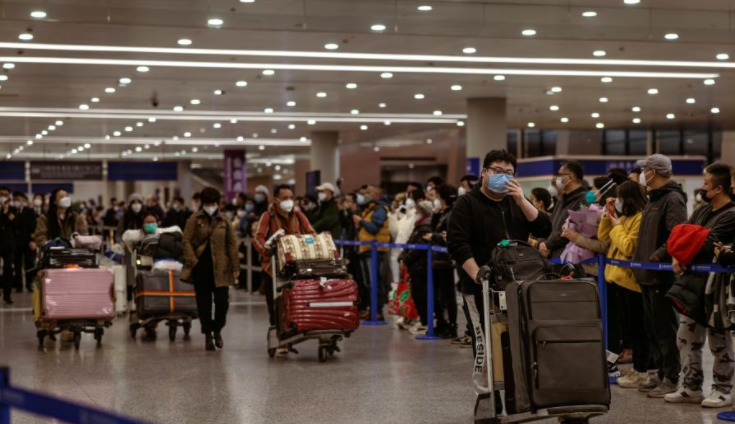
Although China has fully opened its borders, Singapore will cautiously resume the number of flights between the two countries. The picture shows Shanghai Pudong Airport. (European News Agency)
Reason 2: Singapore is not doing nothing
Wang Yikang reminded that Singapore actually still retains the border measures of "pre-departure testing (PDT) if you have not been vaccinated".
At this stage, proof of full vaccinations is still required before anyone flies to Singapore. If you are not fully vaccinated, you must present a negative pre-departure test before you will be allowed to board the flight.
In other words, although Singapore is not fully open like most ASEAN countries, it also does not require pre-departure testing for all people entering China from China like Britain, the United States, Japan and other countries. Instead, it has adopted a middle route.
"Singapore's current measures to control the number of tourists and require those who have not been vaccinated to submit pre-trip testing reports have kept the number of imported cases and severe cases from China at a very low level."
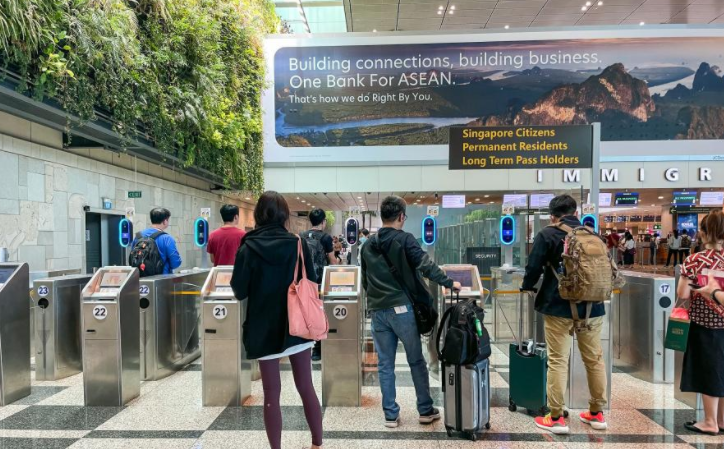
Singapore still requires pre-departure testing for unvaccinated travelers. (Lianhe Zaobao)
Still don't take it lightly
In any case, Ong Ye Kung also warned that Singapore cannot be complacent. Next, the authorities will focus on the development of the epidemic from two aspects:
1. Monitoring mutant strains
Wang Yikang said that the worst-case scenario is the emergence of a mutated strain that is more contagious, has a higher rate of severe illness, and can escape vaccine protection, which will lead to the futility of all anti-epidemic efforts.
Fortunately, this did not happen.
According to the Global Initiative for Shared Influenza Data (GISAID), which monitors coronavirus strains around the world, the BA.5.2 and BF.7 variants that caused the new wave of coronavirus outbreaks in China were already in Singapore and other countries a few months ago. found that the current vaccine can also provide good protection.
"It was a relief for everyone to find out."
Wang Yikang also pointed out that GISAID has set up a local office and is working closely with the Singapore Ministry of Health and the Science, Technology and Research Agency to analyze China's major cities and provinces (Beijing, Shanghai, Guangzhou, Sichuan, Zhejiang, Jiangsu, Fujian, Inner Mongolia, and China) every week. Anhui) provided the latest gene sequence data to GISAID.
2. Ensure that the local healthcare system is not overburdened
Wang Yikang explained that the best way to avoid overloading the local medical system is to use vaccines to deal with the virus. Therefore, Singapore has only insisted on retaining the border measures of "pre-departure testing without vaccination" for incoming tourists.
He also said that requiring all passengers from China to undergo pre-departure testing, or to conduct PCR tests after landing or even test flight wastewater has its limitations, for example, only lagging or incomplete information can be obtained.
In the case that imported cases from China only accounted for a small part of the total, Singapore's approach is to let scientific evidence speak for itself.
"If Singapore is going to take stricter measures for all travelers from China, shouldn't we also do the same for other countries that are causing more infections and severe cases?"
"If Singapore also faces a new wave of epidemics one day, how will other countries treat tourists from Singapore?"
Are the vaccines ready?
Wang Yikang also "sold" the importance of vaccines in Chinese in his ministerial statement:
"At the end of the day, the best defense, and the best thing everyone can do, is get vaccinated and make sure we update our vaccination status."
As for "vaccines one after another, when will it be hit"? Wang Yekang responded:
“Honestly, the coronavirus vaccine has become part of our new normal. Just like influenza and other endemic diseases, we encourage people to get vaccinated once a year, and we can prevent a lot of people from getting very sick or dying.”
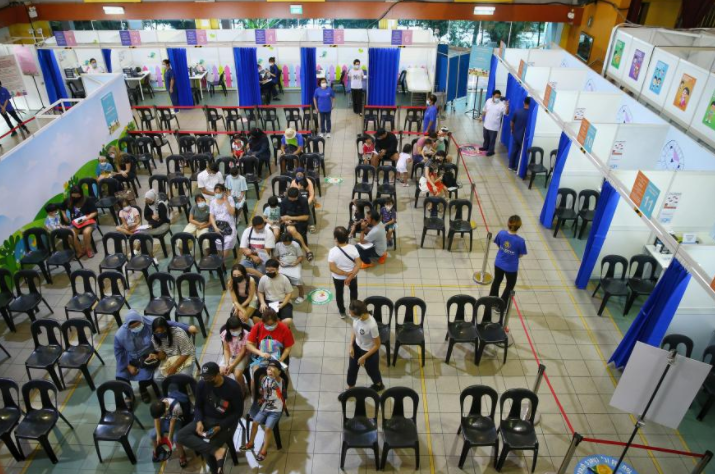
At present, an average of 13,000 local people are vaccinated with the bivalent vaccine for the new crown virus every day.
He also said that the local population has formed a strong "hybrid immunity" because most of the people in the country have been vaccinated or have recovered from mild cases of the new crown disease.
"Nowadays, the chances of Covid-19 causing serious illness or death in Singapore are very low, comparable to influenza or Streptococcus pneumoniae."
He quoted Prime Minister Lee Hsien Loong’s New Year’s message saying that after the peak tourist season at the end of last year and the surge in China’s new crown disease, if the epidemic situation in Singapore can remain stable, Singapore will “hopefully lift the final epidemic prevention restrictions.”

